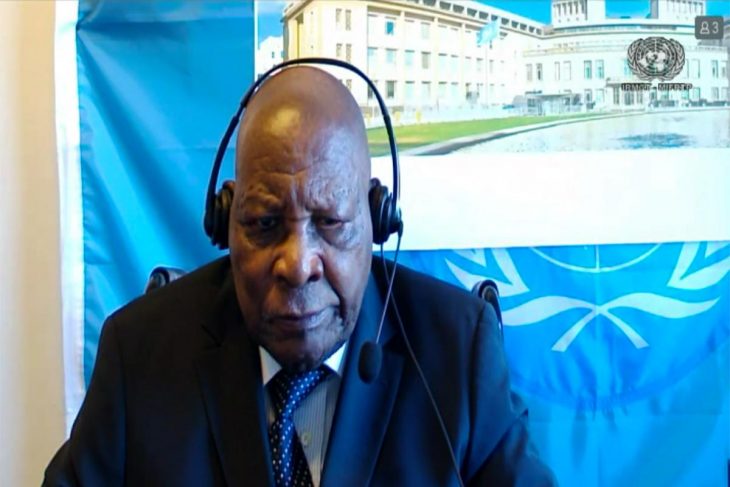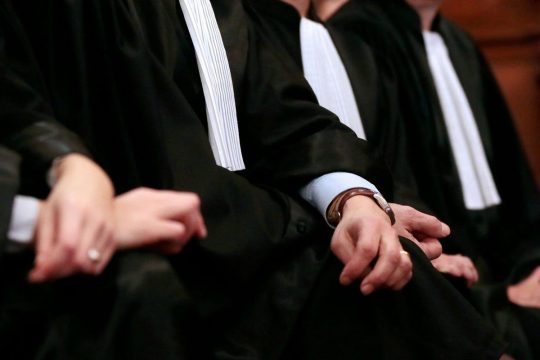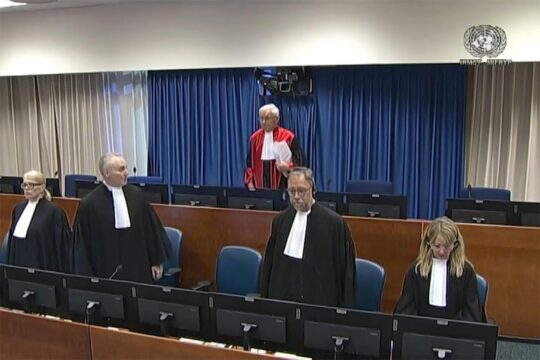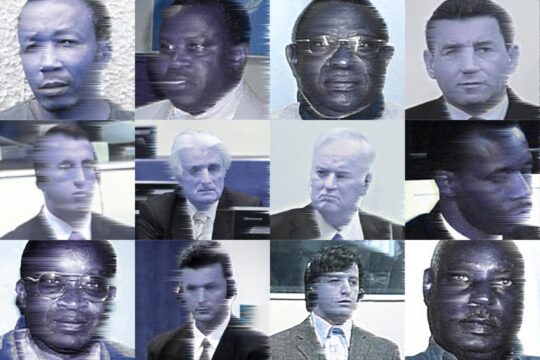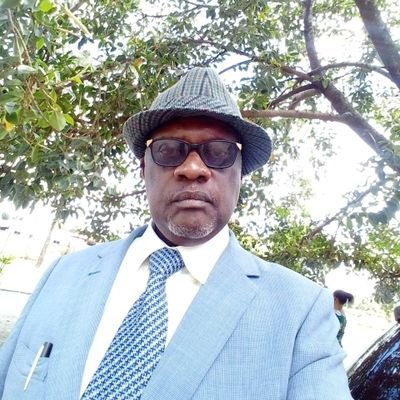The health of Félicien Kabuga, arrested in France two years ago, is the thorn in the side of this trial – or that was at least the main message last week of the UN Mechanism in charge of it. The UN Mechanism is carrying out the residual functions of the International Criminal Tribunal for Rwanda (ICTR), which indicted Kabuga way back in 1997.
A status conference was held on Wednesday, May 11 at the Mechanism’s branch in The Hague. During this hearing, which was broadcast online, the Chamber charged with trying Kabuga announced that it would hear between four and five medical experts from May 31 to June 2. They are to determine whether the accused, born in 1933, is fit to stand trial and whether he can be tried in Arusha, Tanzania, the former seat of the ICTR.
This issue, which arose for the judges immediately after his arrest, has still not been resolved. As the presiding single judge, Iain Bonomy of Scotland, recalled that “Kabuga was temporarily transferred to The Hague Branch of the Mechanism for medical assessment in view of his age as well as concerns raised by him, the Prosecutor and the Registrar related to his physical condition and fitness to travel to Arusha Branch of the Mechanism”. The octogenarian's air travel, in the midst of the Covid-19 pandemic, was deemed too risky.
Five independent medical experts
At his initial appearance on November 21, 2020, the Chamber ordered the Registry to provide a bi-monthly report on the accused's medical condition. Then the Chamber directed the Registry to assign three independent medical experts and prepare a written report that specifically addresses his ability to attend trial. The prosecutor was allowed to assign one expert. The defence has asked to assign one, which, if granted, will bring the total number of independent medical experts to five.
Defence lawyer Emmanuel Altit says it is important to have different specialists in different medical fields, such as neurologists, psychiatrists, and that they also need to be able to create relationships to properly assess the situation.
Conditional release refused
In May 2021, Altit requested that the trial be suspended or, alternatively, that his client be granted conditional release for health reasons. The court denied the request. “Staying the pre-trial phase of the proceedings may in fact interfere with Kabuga's fundamental right to be tried without undue delay, should it be determined that he is presently or may in the future be determined to be fit to stand trial,” the court said in its June 1, 2021 decision.
It was also not convinced that Kabuga would not escape again. “Despite his age and current condition, Kabuga remained a fugitive for over two decades after the confirmation of his initial indictment (…) Therefore, the Trial Chamber is not satisfied by Kabuga's guarantees that, when necessary, he will appear for trial and surrender when required.”
The government of the Netherlands, where he is being held, had stated that it had "no obligation to facilitate the provisional release of Kabuga on its territory”.
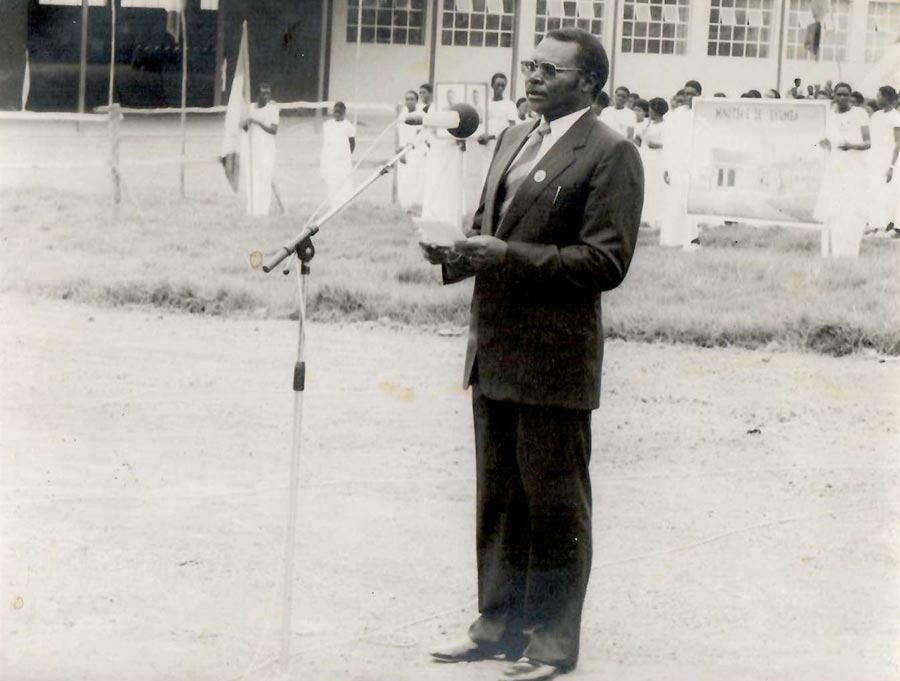
Kabuga at odds with his lawyer
A conflict over the defence is the other thing that seems to have been most preoccupying the court, although urgency would rather suggest it should be doing everything to ensure a trial as soon as possible. But it has not managed to decide on that conflict either.
Since the beginning of 2021, Kabuga and his family have been challenging Altit as lawyer, and have asked that he be replaced by the American Peter Robinson. After the court went into closed session at the beginning of last Wednesday's hearing, the judge explained to Kabuga that there was no reasonable prospect of Robinson being assigned to replace Altit “in view of the fact that he is presently under judicial ordered investigations”. The judge did not specify the nature of these investigations. When contacted, the American lawyer explained that he was the lawyer for Augustin Ngirabatware during his retrial. “I was the lawyer for Augustin Ngirabatware during his effort to overturn his wrongful conviction,” he told Justice Info. “Ngirabatware and four of his supporters were convicted of bribing and training witnesses to recant their testimony and my investigator was acquitted. After the trial, an independent lawyer, called an amicus curiae investigator, was appointed to look into whether I should face sanctions as a result of my role in that case.”
The judge told Kabuga, who attended the hearing in a dark blue suit and showing no signs of senility, that “the trial Chamber has full confidence that Mr Altit and his team are properly representing his interests”. Altit asked to be relieved of defending Kabuga, but the court rejected this joint request by the lawyer and the client.
Family opposes the lawyer
According to Donatien Kabuga, oldest son of the accused, the lawyer “refused to share information on his medical condition and the steps he is taking to protect Mr. Kabuga’s interest, with his children”. Donatien wrote in a communiqué on March 3, 2021 that Kabuga at almost 90 was “completely dazed, confused and extremely sick. He does not know where he is or what is going on around him”. Altit argues in his request to withdraw filed in January 21, 2021, that Kabuga alone should give instructions and that sharing information with the family could constitute a breach of client confidence.
The court considered that “withdrawing the assignment of Mr. Altit now would be contrary to Kabuga's interests as well as to the interests of a fair and expeditious proceeding”. “The right to legal assistance financed by the Mechanism does not confer the right to counsel of one's choosing," said the judge in his April 1, 2021 decision. “While some weight is accorded to the accused's preference, this may be overridden if it is in the interests of justice to do so.”
In Kigali, the slowness of the process is being closely monitored. "The person is in the hands of the Mechanism, we have no control over the speed of the trial. All we want is for the trial to be concluded quickly, given the age of the accused. At the Rwandan Ministry of Justice, we are following things very closely," Umugwaneza Françoise, head of communications at the Rwandan Justice Ministry, told Justice Info.
We were unable to obtain information about the state of readiness for this trial so eagerly awaited by Rwandans, despite numerous requests to the registry, the prosecutor and the defence. The prosecution had indicated a year ago that it was doing everything possible to hold the trial before the end of 2021. On May 10, the Chamber granted the prosecution the possibility to expand its list of witnesses and its list of exhibits. However, everything seems to depend on the conclusions of the medical experts, which will be presented at the end of the month.


